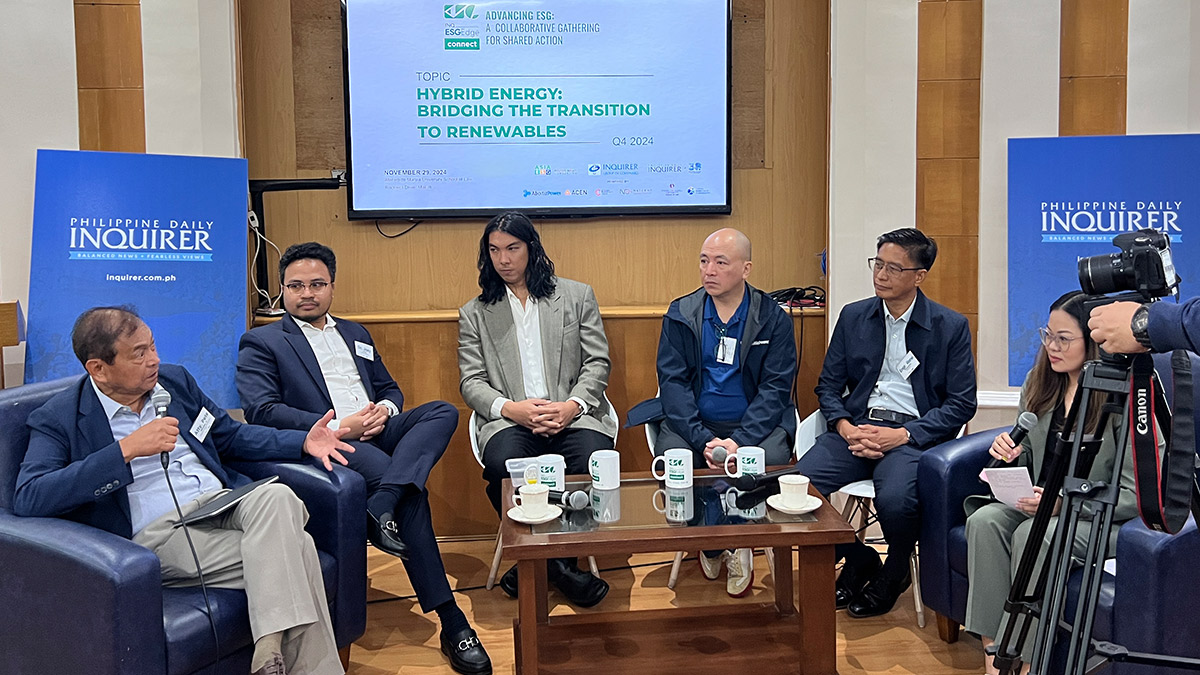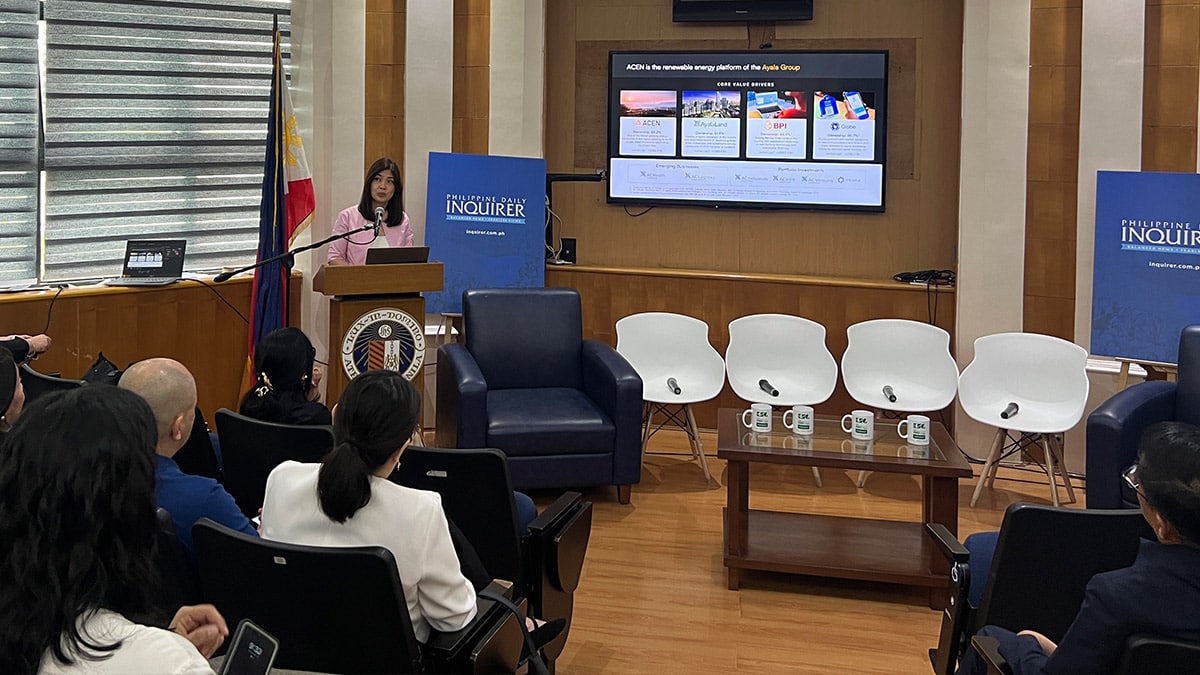Hurdles still high for PH nuclear energy dev’t

The Philippine Daily Inquirer and Inquirer ESG Edge presented the ESG Connect Network at Ateneo Rockwell Makati with the theme “Hybrid Energy: Bridging the transition to renewables” on Nov. 29. From left: Pedro Maniego Jr., Institute of Corporate Directors chair; Joey Ocon, co-founder of Nascent Batteries; John Charles Altomonte of Ateneo School of Government, CEO of SunFund and president of Verne Climate Solutions; Suiee Suarez, vice president at AboitizPower; Rene Fajilagutan, general manager at Romblon Electric Cooperative, Inc. and Inquirer business reporter Jordeene Lagare as moderator. (Photo by Jay-Em Serapion)
The country’s target to introduce nuclear energy into the local power mix by 2032 remains an iffy proposition for industry stakeholders, as local players have yet to show the capacity to build the needed infrastructure and raise the hefty budget required.
This reality check on the planned nuclear deployment was one of the topics at Hybrid Energy: Bridging the Transition to Renewables, a forum held by the Philippine Daily Inquirer on Friday.
Joey Ocon, president and chief scientist at energy storage solutions provider Nascent Batteries, noted that China may be the only country (among emerging markets in the region) capable of building nuclear power plants “on time and on budget.”
President Marcos wants to have the country’s first nuclear power plants up and running by 2032, with an initial capacity of 1,200 megawatts.
“So that’s a big challenge for us if we put nuclear in our energy transition plan. We don’t have the assurance that the developer will be able to build the nuclear power plant on time and on budget,” said Ocon, who is also an engineering professor and scientist at the University of the Philippines Diliman.
Modular reactors
“Because if you have a runaway situation where the construction costs are very expensive, it’s going to be a pricey source of electricity,” he added during the panel discussion.
Ocon also said that while there were talks on the potential use of small modular reactors in the Philippines, the commercial deployment of such a technology has yet to be realized.
“I don’t think it’s possible,” Ocon said, referring to the target.

Irene Maranan, senior vice president and head of Corporate Communications and Sustainability ACEN Corporation at the The Philippine Daily Inquirer and Inquirer ESG Edge forum (Photo by Jay-Em Serapion)
John Charles Altomonte, an environmental scientist who also leads solar energy firm SunFund, echoed Ocon’s statements, saying nuclear energy may “come online way too late and a little bit too expensive.”
Altomonte said the government must focus instead on promoting more renewable projects, particularly geothermal energy.
“I think nuclear doesn’t seem like a very feasible option right now,” Altomonte said.
For Pedro Maniego Jr., Institute of Corporate Directors chair, said that if only the previous government opted to operate the Bataan Nuclear Power Plant (BNPP), the Philippines “[would] not be that far behind other countries.”
Long-mothballed
BNPP was never switched on after construction had been completed in 1986 due to allegations of corruption and issues on safety.
The most aggressive local company vying to fire up this technology is Manila Electric Co. (Meralco) of billionaire Manuel V. Pangilinan.
Meralco has been exploring partnerships abroad, including France and South Korea, to speed up the realization of nuclear energy. INQ
